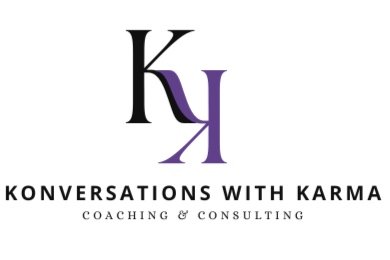Recognizing Burnout: Are You At Risk?
In today’s stressful, high-pressure world, burnout has become a common workplace hazard. It’s more than just having a rough week or feeling overwhelmed by a particularly challenging day. Burnout is a chronic state of stress that leads to physical and emotional exhaustion, cynicism, detachment, and feelings of ineffectiveness and lack of accomplishment. So, how do you know if you're just tired, or if you're experiencing burnout? Let’s delve into the signs of burnout and understand if you might be at risk.
What is Burnout?
Burnout is often the result of prolonged exposure to stressful work situations. While commonly tied to high-intensity professions, it can affect anyone who feels overworked and undervalued. This might be the teacher who spends nights worrying about students, the startup entrepreneur who is under constant pressure to succeed, or the healthcare professional who deals with life-and-death decisions daily.
Signs You Might Be Experiencing Burnout
1. Exhaustion: Feeling tired all the time is one of the first signs of burnout. This isn’t just about physical fatigue but also emotional and mental tiredness, even after sufficient sleep.
2. Alienation from Work-Related Activities: People experiencing burnout often view their jobs as increasingly stressful and frustrating. They even feel cynical about their working conditions and the people they work with. They might also emotionally distance themselves and begin to feel numb about their work.
3. Reduced Performance: Burnout mainly affects everyday tasks at work—or in the home for those who work from their residences. Individuals with burnout feel negative about tasks, have difficulty concentrating, and often lack creativity.
Causes of Burnout
Understanding what leads to burnout is key in preventing it. Here are a few common causes:
Lack of Autonomy: Unable to influence decisions that affect your job — such as your schedule, projects, or workload — could lead to burnout. Lack of the resources you need to do your work is also a contributing factor.
Unclear Job Expectations: If you're unclear about the degree of authority you have or what your supervisor or others expect from you, , it can contribute significantly to feelings of burnout. Not knowing what's expected of you means you're always in a state of guessing and anxiety.
Extremes of Activity: When a job is monotonous or chaotic, you need constant energy to remain focused, which can lead to fatigue and job burnout.
Dysfunctional Workplace Dynamics: Perhaps you work with an office bully, or you feel undermined by colleagues, or your manager micromanages your work. This can contribute to job stress and lead to burnout.
Work-Life Imbalance: If your work takes up so much of your time and effort that you neglect self-care or are too drained to spend time with your family and friends, you might burn out quickly.
Strategies to Prevent Burnout
Recognizing the signs and causes of burnout is a critical first step. Here are some strategies to help you prevent burnout:
1. Evaluate Your Options: Discuss specific concerns with your supervisor. Maybe you can work together to change expectations or reach compromises or solutions. Is it possible to work flexible hours or remotely?
2. Seek Support: Finding a coach or trusted professional to help you create a plan to reduce stress and improve your work-life balance. Whether you reach out to professionals, co-workers, friends, or loved ones, support and collaboration might help you cope. Employee assistance programs (EAPs) might be available through your employer as well.
3. Try a Relaxing Activity: Explore programs that can offer skills to help you manage stress. Yoga, meditation, and mindfulness are great activities for reducing stress.
4. Get Some Exercise: Regular physical activity can help you to better deal with stress. It also takes your mind off work.
5. Get Enough Sleep: Sleep restores well-being and helps protect your overall health.
6. Mindfulness: The practice of mindfulness can help you to recognize and break the cycle of burnout. By focusing on being intensely aware of what you're sensing and feeling at every moment — without interpretation or judgment — mindfulness involves breathing methods, guided imagery, and other practices to relax the body and mind and help reduce stress.
Remember, burnout isn't simply about being excessively busy — it's about being busy in a way that feels unproductive, unsatisfying, and unrelenting. Recognizing the signs of burnout is the first step toward making the changes necessary for better work-life balance, health, and happiness. If these symptoms sound familiar, it may be time to take action and consider how you can reintroduce a sense of control and satisfaction back into your professional life.

